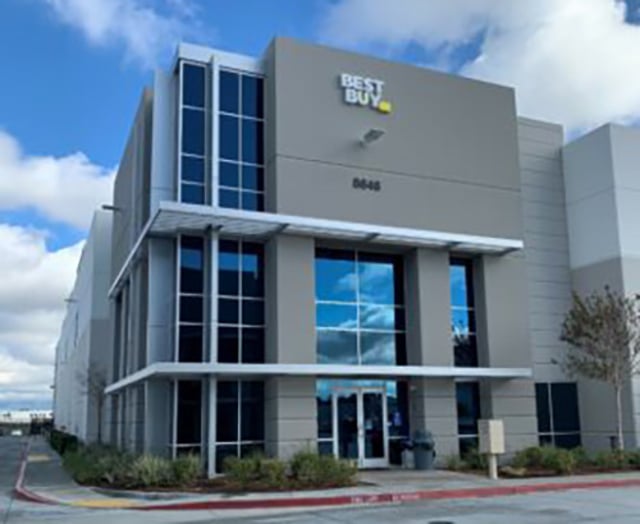Best Buy opens its first zero-waste facility
Best Buy continues to make its business more sustainable.
The consumer electronics retailer’s reverse logistics center in Chino, California, has earned Best Buy its first TRUE (Total Resource Use and Efficiency) certification for zero waste. (The TRUE certification helps facilities define, pursue and achieve zero waste goals, which increases their resource efficiency, cuts their carbon footprint and supports public health. It’s administered by Green Business Certification Inc. and is a complement to LEED and other green rating systems.)
During the past year, the Best Buy supply chain facility was able to divert more than 99.67% of its solid waste from landfills. It achieved the milestone by identifying waste streams and finding ways to make it easier for employees to recycle. During the process, the retailer data gathered by Rubicon — a software platform that provides smart waste and recycling solutions — to create a baseline for its waste diversion efforts, then pinpoint opportunities to achieve its goal.
The work was a team effort, according to Best Buy.
“A dedicated group of employees came together to form a “green team,” and led the charge in launching several new waste initiatives, including standardized color-coded containers and labels throughout the office, lunchroom and warehouse to help increase employee recycling,” the company said.
Additionally, waste reduction remains an important facet of Best Buy’s environmental strategy across its operations. The company set a goal to achieve 85% waste diversion.
Best Buy noted that the Chino facility milestone is part of its broader efforts to protect the planet and create a more sustainable future. Part of the commitment is to reduce its carbon footprint and helping our customers keep e-waste out of landfills.
“To continue reducing our impact on the environment, we will work toward building a more sustainable supply chain, expanding our zero-waste efforts to different facilities,” the company said.
Best Buy has reduced its emissions nearly 60% since 2009 and is committed to doing more. By 2030, it wants to reduce carbon emissions by 75% while also helping customers reduce their own carbon emissions by 20%. It also signed The Climate Pledge, committing to be carbon neutral across its operations by 2040.


